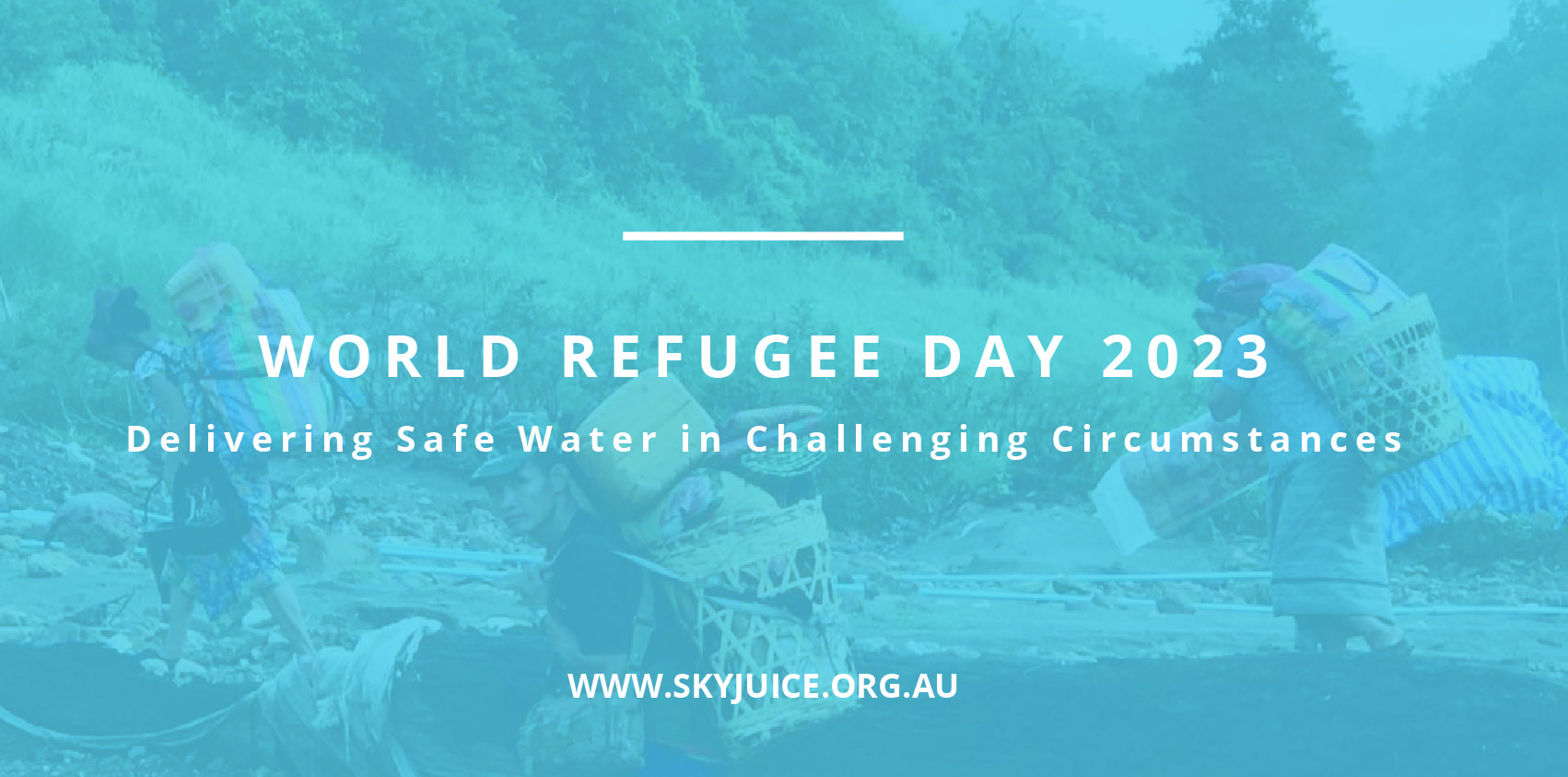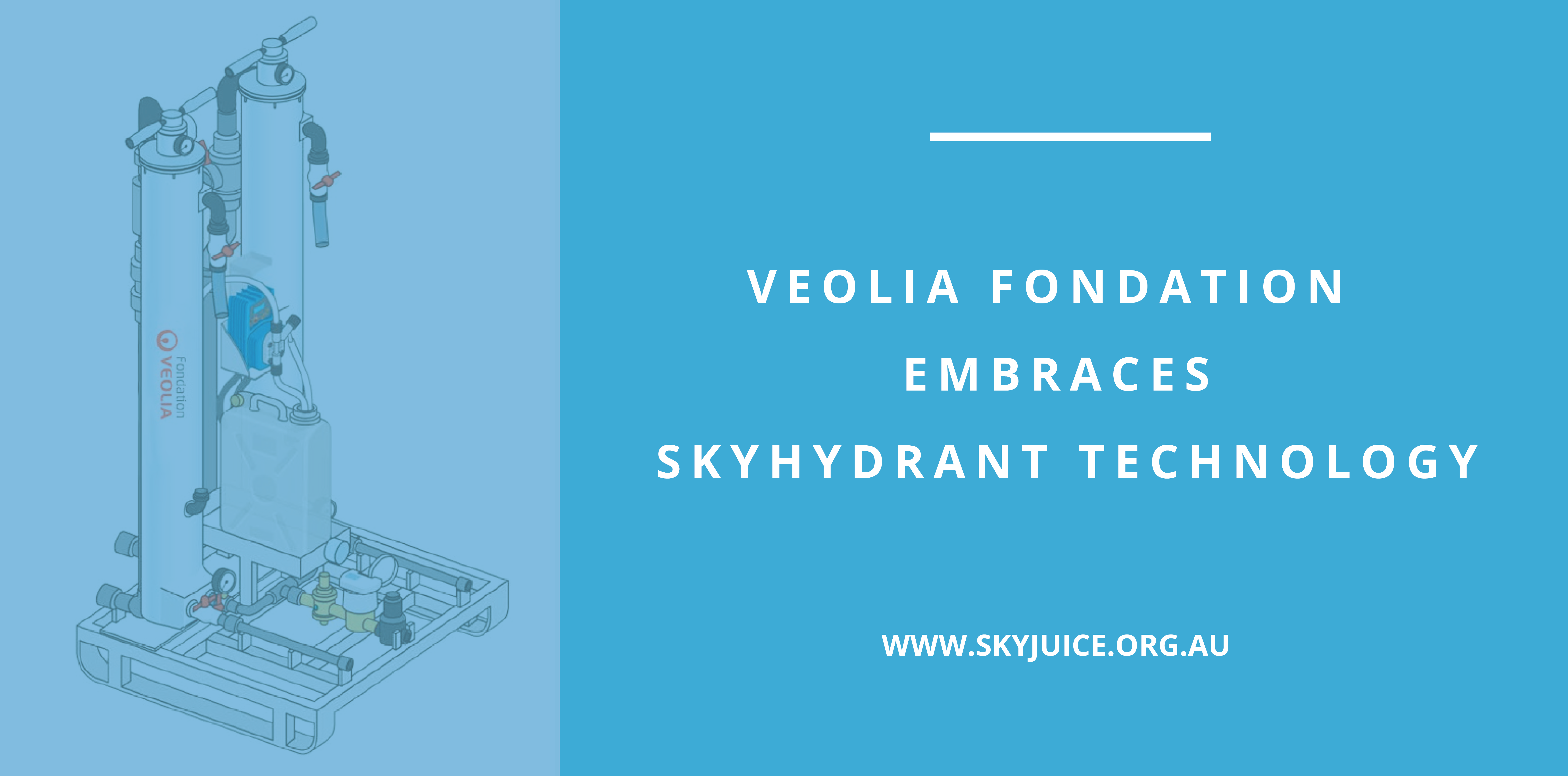Why do some safe water systems in developing countries work, and others don’t? There are some key principles that we’ve learned over the past 12 years. Don’t waste your time and effort. Follow these principles and you will have much greater success installing a system that is valued, utilised and sustainable.
Principle 1: Gifting solutions doesn’t work.
There are many examples that demonstrate that gifting safe water solutions to communities does not work. Communities need to be involved in the process of deciding what they need and how it will be managed into the future. They also need to take an “equitable” form of contribution to any project.
Principle 2: Local Stakeholders to have a critical role and input from the start.
Local stakeholders need to have a critical role from the very beginning of the project planning phase. More than often, coming to the discussion late results in rejection of the idea or neglect of the ongoing operation and maintenance obligation. SkyJuice Foundation works with local NGOs who have established relationships with local communities. We encourage proactive identification of the key stakeholders to involve and manage the engagement process.
Principle 3: Involve local women in management of community water enterprises.
Women are strong local role models at affecting change in communities. Their skill sets and ability to manage small enterprises mean they are a natural fit for involvement in managing community water enterprises. Get them involved early, they will help facilitate community engagement and operation and maintenance of the installation.
Principle 4: Invest the time and effort to research, understand and manage water source adequately at the start.
Local water sources must be well researched, understood and managed. Success and long term viability depends on a reliable, consistent water source. This includes social, political, technical and seasonal factors. Here are some examples of what can go wrong:
- Water sources that dry out seasonally
- Competition for the supposed allocated water source
- The source is impacted by Industrial and third party discharge
- Local authorities and agencies step in to block the operation
Principle 5: Consider all potential capabilities of individual installations.
Installations with dual capabilities are very valuable, such as installation on fence lines of compounds that can provide two-way service delivery. A water tower or kiosk can be installed to service facilities such as schools, hospitals or clinics. The facility can supply internally while supplying access to water for local residents external after hours, often generating additional revenue. These facilities are often in the centre of communities and offer excellent, central locations for safe water enterprises.
Principle 6: One single person allocated accountability and responsibility for success of safe water installation.
Committees and consultations are very important, but ultimately there must be an accountable, individual to take responsibility for the success of the safe water installation – not a committee. The person responsible can be a volunteer, a paid employee or an independent operator but nevertheless, without one person taking responsibility and ownership of the project, the success rate declines considerably.
Principle 7: Never disperse safe water without obligation or a nominal cost.
Safe Water is not free and should never be dispersed without obligations or a nominal “social” cost. Safe water access becomes a valuable and respected community commodity, while fostering entrepreneurship, creating new opportunities for generating income. The filtered drinking water must be sold at an affordable price, to reinvested earnings to sustain the project and its ongoing management.
Principle 8: Charge a fair market price for safe water.
Safe drinking water is an essential human requirement. Many communities who lack access to a centralised water system are reliant on individuals and businesses who sell water. Sometimes the water is not even safe for human consumption.
Installations of safe water systems for developing countries must result in safe water that can be distributed at a fair and affordable price to local community members. SkyJuice Safe Water Kiosk water is sold at a fair price that is always below local untreated water vendors pricing to sustain ongoing maintenance and operation of the kiosk into the future.
Principle 9: Include incentives to encourage the use of clean containers.
Customers should always be educated and encouraged to use clean containers when collecting safe water. Pricing incentives should be on offer to reinforce safe hygiene practises such as returning the bottles or containers to be cleaned by the operator. These incentives do not only increase hygiene but will have a positive effect on safety and environmental sustainability. SkyJuice recommends that operators charge a reduced price” incentive” for water to those who bring back their containers for disinfecting by the kiosk operator and refilling.
Principle 10: Always combine ongoing education of water related hygiene practices alongside service and delivery of safe water.
Following these principles provide numerous opportunities to maximise educational benefits alongside the service and delivery of safe water. It is imperative to utilise these opportunities for educational campaigns and training to ensure long-term success of the project as well as the local community. E.g. displaying educational posters on the outside of the kiosk, training the kiosk operator to share educational messages etc. Community networking is common outside water kiosks. It is a great location to get community talking about important issues.



5 Comments
Geoff Pike · 9 October 2017 at 6:11 am
I enjoyed reading your article, the methods and principles explained also apply across business generally.
Bing Mordeno · 27 November 2017 at 2:46 am
Brilliant, well-meaninged principles! Thanks, Skyjuice and DAA for the hydrants…. As David Langworthy and Rhett Butler always say, let us continue making spaces, cocollaborations to “provide safe drinking water for every child”. And the time is here and now….
SkyJuice Foundation · 8 December 2017 at 9:21 am
Thanks Geoff, We appreciate the comment!
SkyJuice Foundation · 8 December 2017 at 9:21 am
Thanks for your comment Bing! Much appreciated 🙂
Richard Rejas · 10 January 2018 at 9:42 am
Excellent info/input. Very reflective and insightful. Thanks much.